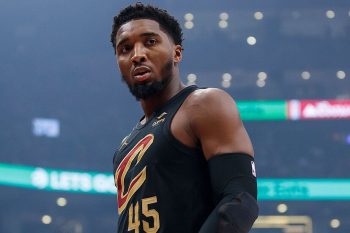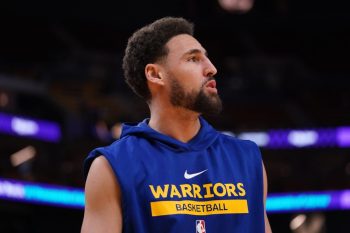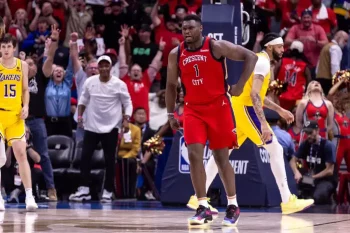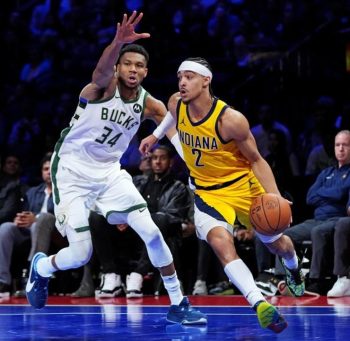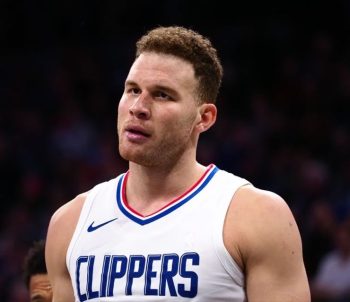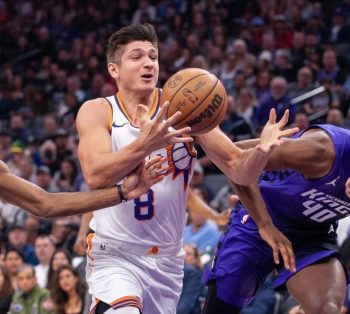NBA
Can Cavaliers Overcome Loss of Kyrie Irving?

On Saturday, Kyrie Irving underwent surgery to repair his fractured kneecap and will likely be sidelined for the next three-to-four months.
The loss of Irving is obviously a devastating blow for a Cavaliers team that is already playing without Kevin Love. The Cavaliers entered the Finals as underdogs against the high-octane Golden State Warriors and after losing Game 1, and Irving for the series, it now seems as though Cleveland has little, if any hope, of overcoming the Warriors.
But Irving was already playing through significant injuries and wasn’t 100 percent entering the Finals. And even when Irving is healthy, he is not much of a defender and by most measures an average facilitator for his teammates. However, it should be noted that he was excellent in Game 1, which gave Cavs fans hope that the extended time off before the Finals helped him recover enough to be effective moving forward. But again, as great as Irving is, there are flaws in his game. With just about everyone counting the Cavaliers out, the question now becomes, is there any hope for the Cavaliers to pull off an upset in this series?
“A lot of people are saying the series is over, but that’s not true,” Warriors guard Klay Thompson said recently. “This is a team that’s more than capable. They did beat the Atlanta Hawks twice without him, and that was the best team in the East. So you’ve got to respect what the other guys can do. Obviously, Kyrie’s a huge part of their team. He’s one of their best players. But you can’t let your guard down. They’ve still got guys who are more than capable of making plays.”
Understanding that the Cavaliers are now at a severe disadvantage in this series, let’s take a look to see whether the loss of Irving really is too big of a setback for the Cavaliers to overcome.
Irving missed two of Cleveland’s 15 playoff games and hobbled through several others. In the games that he did play, in 35.7 minutes of action, he averaged 19 points, 3.6 rebounds, 3.8 assists and 1.3 steals, while shooting 43.8 percent from the field and 45 percent from beyond-the-arc. During the regular season, in 36.4 minutes per game, Irving averaged 21.7 points, 3.2 rebounds, 5.2 assists and 1.2 steals while shooting 46.8 percent from the field and 41.5 percent from three-point range. So despite the ongoing injury issues, Irving has been putting up his usual numbers, for the most part.
When Irving was on the court, the Cavs have scored 108.2 points per 100 possessions while giving up 101.6 points to opponents (+6.6). When he was off the court, the Cavs have scored 107.3 points per 100 possessions, while giving up just 95.1, good for a +12.1 net rating. In addition, with backup point guard Matthew Dellavedova in the lineup, the Cavaliers have given up just 96.7 points per 100 possessions, which is a major improvement. The offense is not nearly as good with Dellavedova running the point, but the improvement on defense produces a better net rating for the Cavaliers than with Irving on the floor.
Now, it should be pointed out that looking strictly at these numbers and trying to surmise some overarching significance is unwise without keeping in mind the context, how small the sample size is, the quality of the opposition and which teammates a player is on the court with most often. This is a topic that Cavaliers general manager David Griffin briefly discussed recently.
“From an analytics standpoint, it’s not a big sample size,” David Griffin said regarding lineup data without Love and Irving. “I think you have to take a little bit of that with a grain of salt because it’s also about match ups and we were really fortunate the teams we played lent themselves to the style we were going to play. Golden State is a totally different animal. If you get to choose, you’ll always choose more talent. But I’m really grateful we’ve got the mentality we have.”
Also consider how much the Cavaliers’ offense has relied on Irving. He has a 23.3 usage percentage, which is fourth highest on the team. James is first with a whopping 37.2 usage percentage. These numbers should come as no surprise though considering how often each player attempts to score in isolation sets.
But even more telling are Irving and James’ True Usage Percentages. True Usage is a statistic that is compiled by Nylon Calculus’ Seth Partnow. True Usage uses data from SportVU tracking to estimate the percentage of offensive possessions during which a player contributes to the end result of a play. This is done by calculating events such as a scoring attempt, a turnover, or a potential assist.
In these playoffs, James has a whopping 61.3 True Usage Percentage and 20 percent assist usage, whereas Irving’s is just 38.1 and 12.4 percent, respectively. Irving’s 12.4 percent assist usage rating falls well below a lot of other players who aren’t even known as great facilitators, including Aaron Brooks and Nick Calathes. In addition, Irving ranks just 26th in the postseason in assist opportunities per game at just 8.2 and 28th in actual points scored off assists at 9.2.
The point here is that with the Cavaliers running a high dosage of isolation ball, with James and Irving often taking turns, the loss of Irving means that Cleveland is losing one of its premiere offensive weapons, but not someone who substantially improves the performance of his teammates as a facilitator. With Irving out, now the onus is on James to handle the ball even more and to find more ways to get his teammates consistent, open looks.
To be clear, Irving is a strong contributor for the Cavaliers, well beyond what these numbers show. But guys like James, John Wall, Stephen Curry and Chris Paul are extremely involved in their respective team’s offenses and create a high volume of scoring opportunities for their teammates. The way they play the game makes them valuable beyond their individual contributions. The same cannot be said about Irving, at least to the level of the aforementioned players. Though, in Irving’s defense, he plays alongside James, who often plays the role of point guard and has the ball in his hands more than most point guards in the league. And these numbers can’t properly convey how opponents have to bring extra attention to Irving, how they have to alter their schemes when he is on the court, and how his presence alone gives his teammates more space to operate.
So, the question then becomes, can Irving’s replacement, Matthew Dellavedova, adequately fill in for Irving to give the Cavaliers a chance in this series?
“You all saw he played terrifically,” Cavaliers head coach David Blatt said recently. “Matty (Dellavedova) has been a rotation player for us the whole year. He stepped in and did a great job, and the team believes in him and we believe in him. If necessary, he has to play significant minutes again, he’ll be ready, and we’ll know how to play with him.”
Dellavedova, who went undrafted out of St. Mary’s College almost two years ago, has averaged 6.5 points, 2.7 assists and 21 minutes in 15 playoff games. He has exceeded expectations this postseason, often bringing an emotional boost to his team through sheer hustle and determination.
Dellavedova cannot replace Irving’s production on offense, but the Cavaliers, as previously mentioned, have been a better defensive unit with him on the floor. In a series against the most explosive offensive team in the league, the Cavaliers needed every offensive weapon available and firing on all cylinders to have a real shot against the Warriors. With Irving out, the Cavaliers’ best hope at this point is that Dellavedova, along with J.R. Smith and Iman Shumpert, can help slow down the Warriors backcourt.
That’s a tall task, and one that shouldn’t be counted on. Stephen Curry is simply too dominant on offense and it’s only a matter of time before he goes supernova. When that happens, there is no answer for the Cavaliers. The best the Cavaliers can hope for is that every role player plays even a little above their usual level of production, that Tristan Thompson and Timofey Mozgov can dominate the Warriors on the boards and in the paint, and that James can raise his game to another transcendent level and raise his teammates up with him.
Cleveland is down and this series could potentially end in a sweep. This series is not over (though the result is almost a virtual lock in favor of the Warriors), but the burden James will have to carry is now one that even he probably can’t handle on his broad shoulders. If he does, it will go down as one of the greatest achievements in recent sports history.
